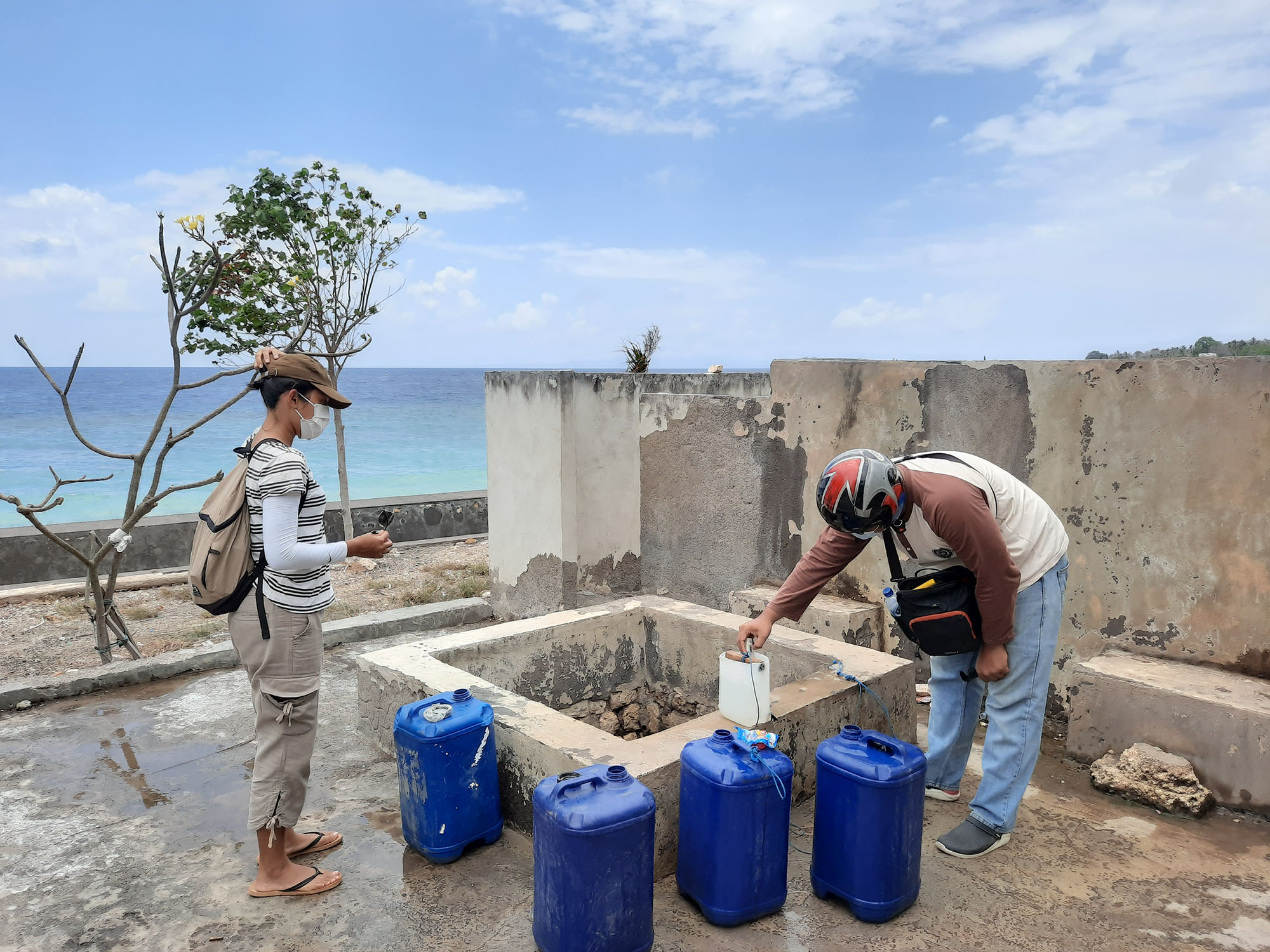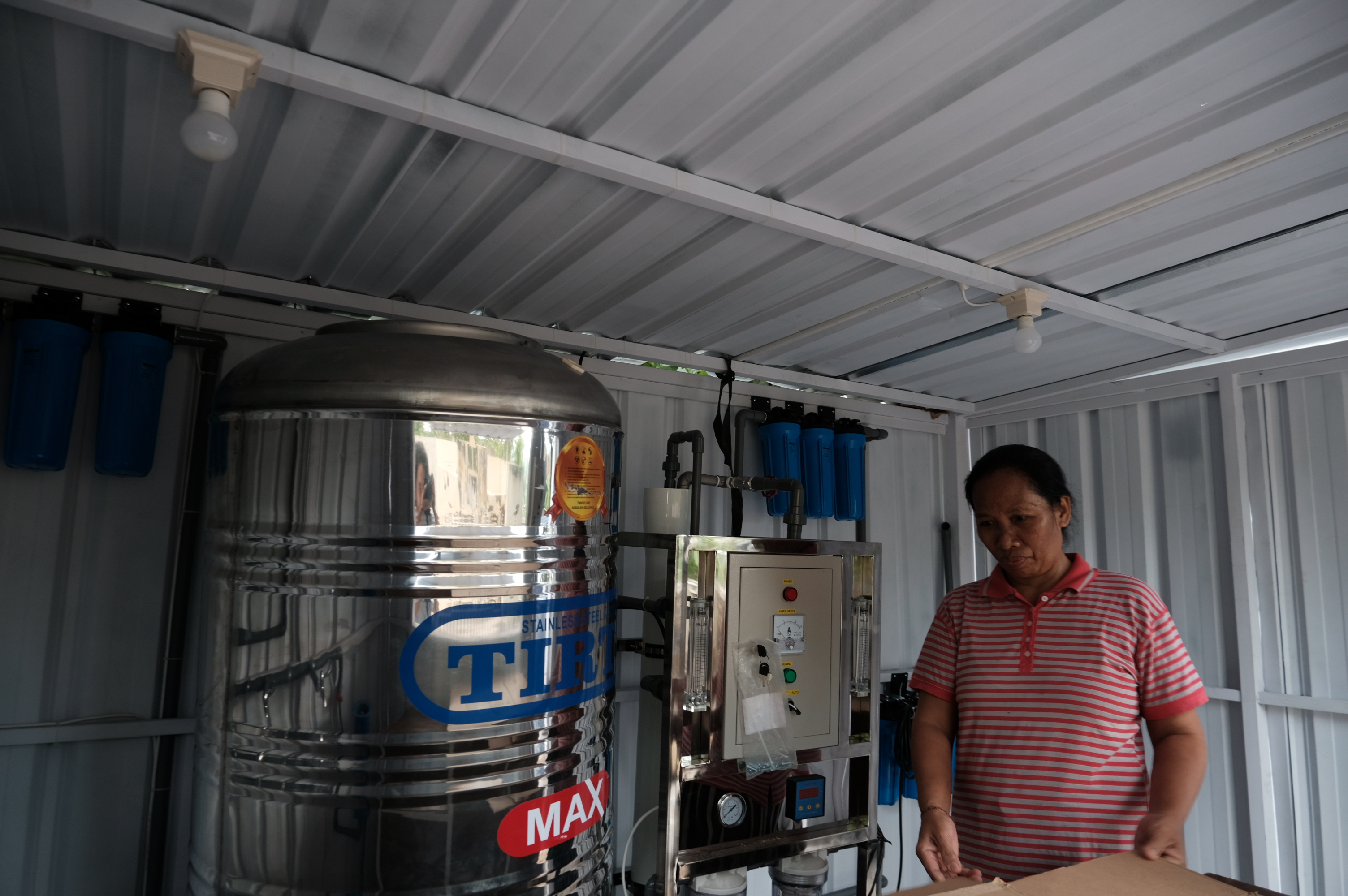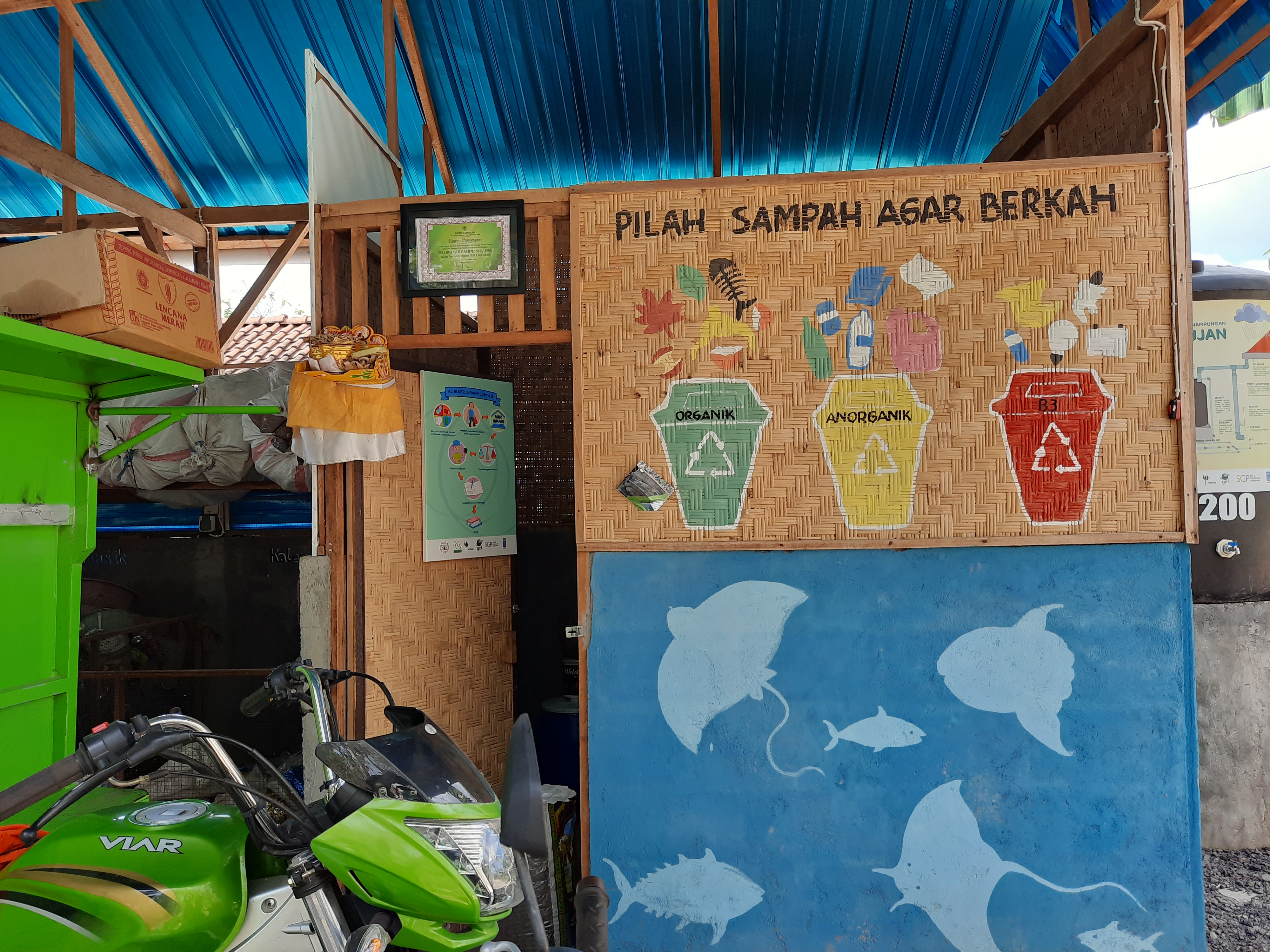Kopernik is excited to partner with the Canada Fund for Local Initiatives (CFLI) in Indonesia on the “Waste for Water: Creating A Community-Led Water Desalination Business to Provide Clean Drinking Water to Coastal Villages in Indonesia” Project. Supported by the Government of Canada, which is represented by the Embassy of Canada in Indonesia and Timor Leste, the CFLI supports local civil society organizations to implement small-scale, high-impact projects in more than 120 countries.
Kopernik’s work with desalination technology goes back to 2016 when we tested a small-scale evaporative desalination technology in East Flores. The experiment showed that while the technology was able to generate on average 10 liters of freshwater per day, we concluded that a more substantial desalination technology is needed to provide sufficient amounts of drinking water.
In Bali, access to clean drinking water is increasingly challenging, primarily due to the rapid growth of the tourism industry. The construction of thousands of hotels has made access to clean water more difficult for certain communities.
 Through a partnership with the Embassy of Canada we are building a community-managed water desalination facility to provide clean water for coastal communities in Nusa Penida, Bali.
Through a partnership with the Embassy of Canada we are building a community-managed water desalination facility to provide clean water for coastal communities in Nusa Penida, Bali.
One solution for coastal communities is desalination, a method of removing salt from seawater. As desalination technology continues to develop and become increasingly affordable, it is now becoming a viable solution to address drinking water scarcity for coastal communities.
We have developed the Waste for Water initiative, to create a community-led water desalination business to provide clean drinking water to coastal villages in Nusa Penida, Bali. In partnership with Wujudkan!, we are installing a community-managed desalination plant in a village of Nusa Penida, one of the driest regions in Bali. Using a reverse osmosis system, the desalination facility can produce up to 3,000 liters of water per day.

As part of this project, we are also conducting a campaign advocating for the importance of water preservation and sustainable water management. Through the campaign, we share information on safe drinking water, the water purification process, and promoting a “waste-for-water” initiative that enables the community to exchange recyclable waste such as used bottles, cardboard, and paper, for clean drinking water.

Through the waste-for-water initiative, the coastal community is able to exchange recyclable waste such as used bottles, paper and cardboard for clean drinking water.
The desalination plant is being built in the Celagi Sub-Village, Suana Village. Located in the northeast of the island, the village is not served by PDAM the state-owned water company and the community relies on rainwater harvesting and private water suppliers. We are working with a local waste bank, Yayasan Nusa Penida Bersih, to implement the waste-for-water initiative.
In December, we facilitated a community-based workshop in the village to co-develop a business model for the desalination facility as well as to build technical capacity for those who will be in charge of the desalination plant operation and maintenance. Experts from Muntigunung and the Bali Environmental Education Center shared their experiences in managing similar community-based initiatives. The community were enthusiastic about the community-led desalination facility as an affordable source of clean drinking water.
This experiment will assess the feasibility of a community-managed water desalination business model. If the experiment shows promising results, this model can be replicated in other coastal villages across Indonesia.
Learn more about this project on our website.


